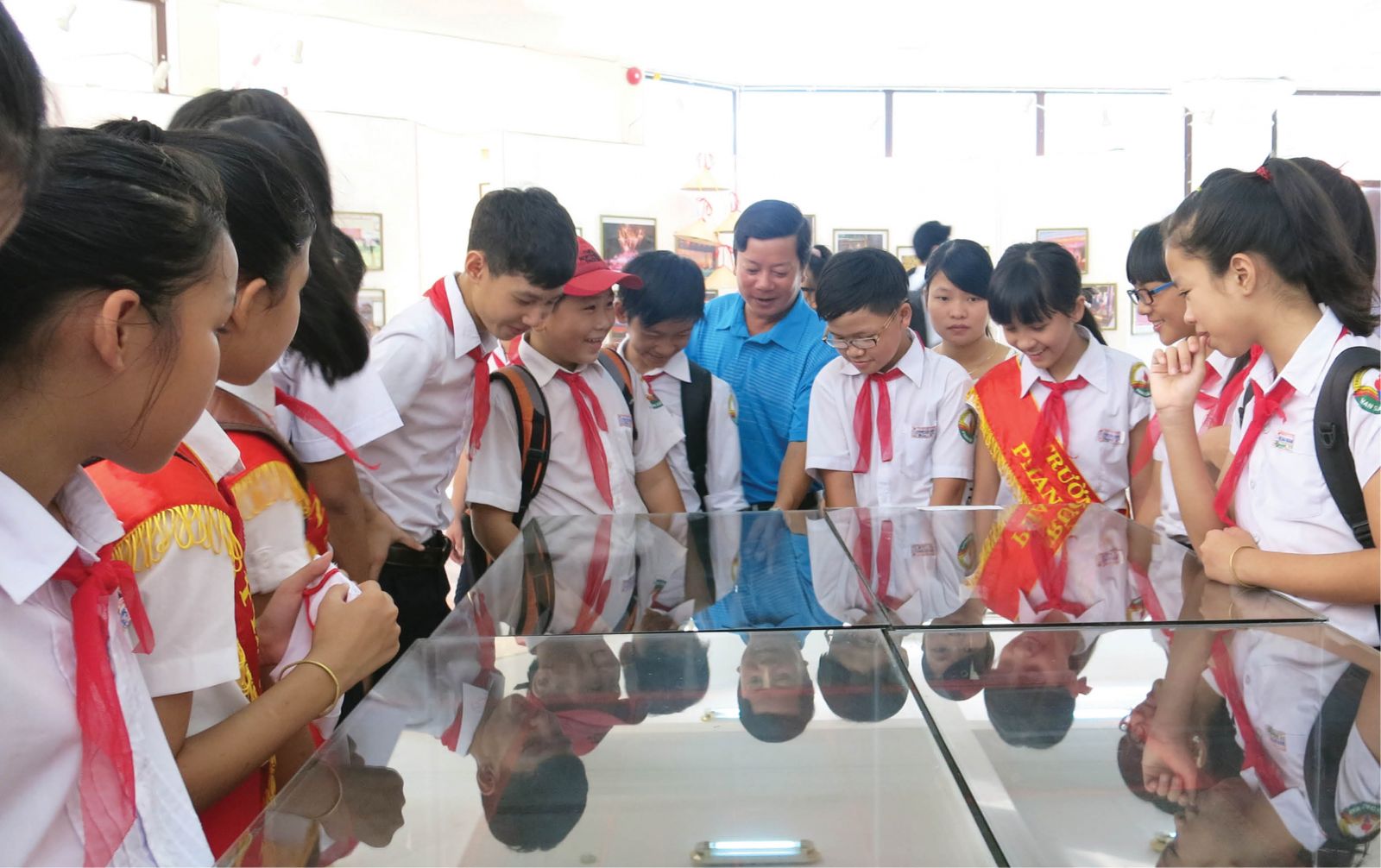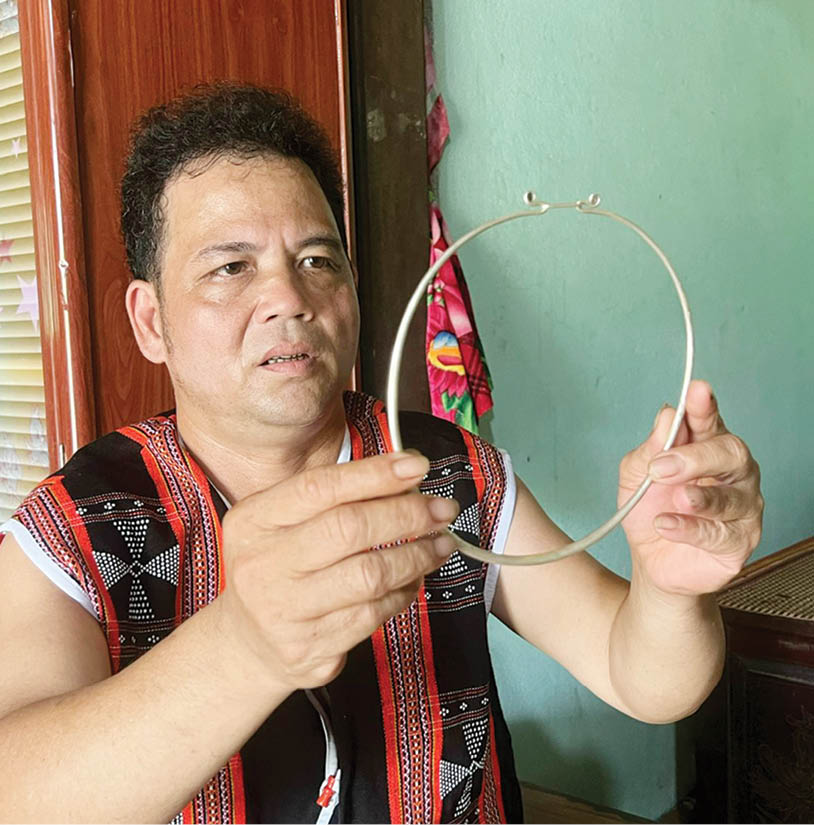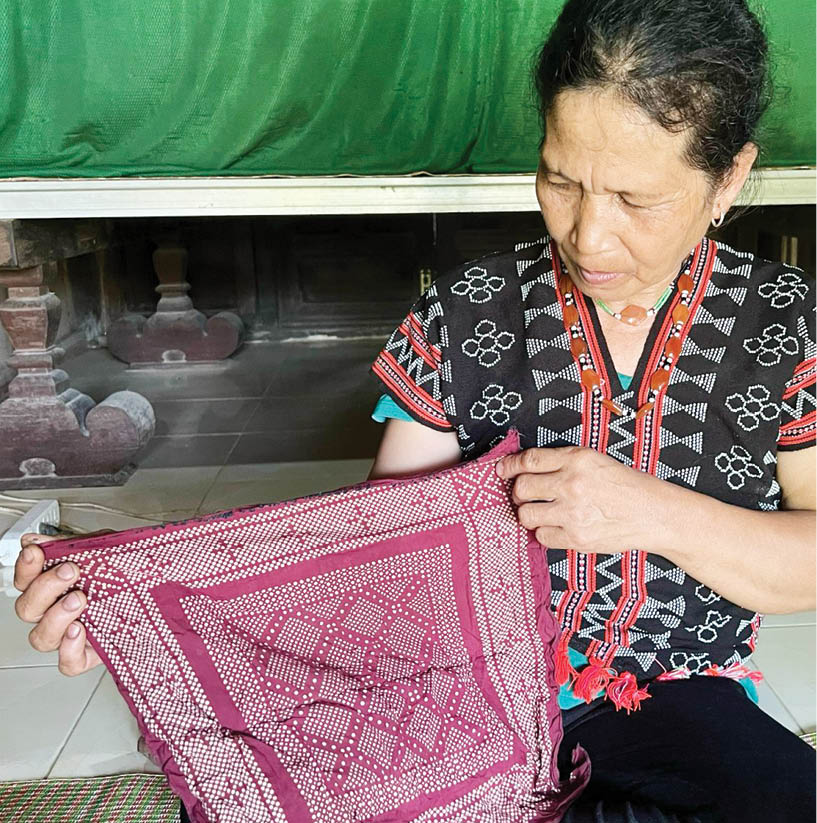
Pupils visiting the Ho Chi Minh museum in Thua Thien Hue. Photo: Minh Hien
Honored to receive the gifts from Uncle Ho
At Village 5 (formerly Ta Vac Village) in Thuong Long Commune, the mountainous district of Nam Dong on the first days of May 2022, as recommended by Tran Van Tri, Secretary of the Party Committee of the village, we found the house of Mr. Ho Minh Ten, Quynh Teu’s son. Formerly named Pham Minh Ten, he asked to have his surname changed to Ho after Uncle Ho.
Ho Minh Ten was touched when we mentioned his father and the sacred mementoes presented to him by Uncle Ho.
After the revolution of August, 1945, with the care and guidance of the Central Committee of the Party and Uncle Ho, the ethnic minorities in the mountainous area of Nam Dong became awakened and wanted to support the Party and Uncle Ho. They actively participated in the resistance war and contributed a lot to the victory of the revolution.
As told by his father, in 1959, the Central Committee of the Party invited village elders, village chiefs, and those who had served the revolution to visit the socialist North. Because his father had been involved in revolutionary activities since 1955, and his family had served as a revolutionary base, his father’s name was in the list.
Visiting the North with the atmosphere of people working actively and diligently, the members of the delegation believed even more in Uncle Ho and the Central Committee of the Party for a bright future, the liberation of the South, and the unification of the country.
On September 2, 1959, his father and the delegation from Thua Thien Hue attended the National Day Celebration of the Democratic Republic of Vietnam at Ba Dinh Hall in Hanoi. Uncle Ho came, talked, and presented gifts to the members of the delegation. He spoke to them in a very intimate and friendly manner. His voice was gentle and warm; his gestures were kind and considerate.
Especially, Uncle Ho knew the customs of the ethnic minorities in the Truong Son mountain range very well. He gave each member a silver bangle, two square-shaped handkerchiefs, and an aluminum mug. Before parting, the group took photos with him.
The members of the delegation brought their once-in-a-lifetime treasure together with Uncle Ho’s sentiment back to the South. During the war against the Americans, as an important strategic area, Nam Dong in particular and western Thua Thien Hue in general were fiercely attacked. People there lacked salt to eat and tools for farming. That was why they were so touched to receive salt, axes, hoes, etc. from the Party and Uncle Ho.
That was a great source of encouragement, making them believe in the Party and Uncle Ho. They tried to overcome difficulties and hardship and took part in transporting bullets to the battlefield and rice to feed soldiers.
The faith from the mementoes
Pham Van Kinh, a gong artist and Quynh Teu's son, with the silver bangle in his hands, told us about how they had cherished with pride the sacred mementoes during the war against the US.

The silver bangle is being kept by Pham Van Kinh, a gong artist and Quynh Teu’s son.
In an attack by the enemy, their tilt house was burnt down, including the photo of Quynh Teu and Uncle Ho. The remaining two handkerchiefs, the mug, and the silver bangle were hidden in a tree base in the forest. When the forest was bombed, his father buried the objects in the ground.
In the Spring of 1975, when the South was completely liberated and the country was unified, his family dug up those mementos and kept them carefully. Peace was restored. They were no longer afraid of the enemy's questioning about those objects. His father gave the bangle to his wife and the handkerchiefs to his two daughters when they got married. The aluminum mug was for the eldest son. He did this with the desire to pass on his faith and gratitude to the Party and Uncle Ho to his descendants.

The handkerchief kept by Quynh Teu’s daughter Pham Thi Thong
In 1997, some officials from the Ho Chi Minh museum in Thua Thien Hue came to help carry out the will of the family. One of the two handkerchiefs and the aluminum mug were presented to the museum.
"My father did this so that Vietnamese people and foreigners would have opportunities to know Uncle Ho's thoughtful and profound affection for the ethnic minorities living on the Truong Son mountain range,” said Ho Minh Tien.
Currently, the silver bangle is being kept by the gong artist Pham Van Kinh - Quynh Teu’s son. The other handkerchief is being kept by his daughter Pham Thi Thong.
As said by Pham Van Kinh, in order to continue the patriotic tradition of his family, he always reminds his children and grandchildren of the mementoes. He wants to pass his faith and gratitude to the Party and Uncle Ho to his descendants.
Story and photos: Thai Binh